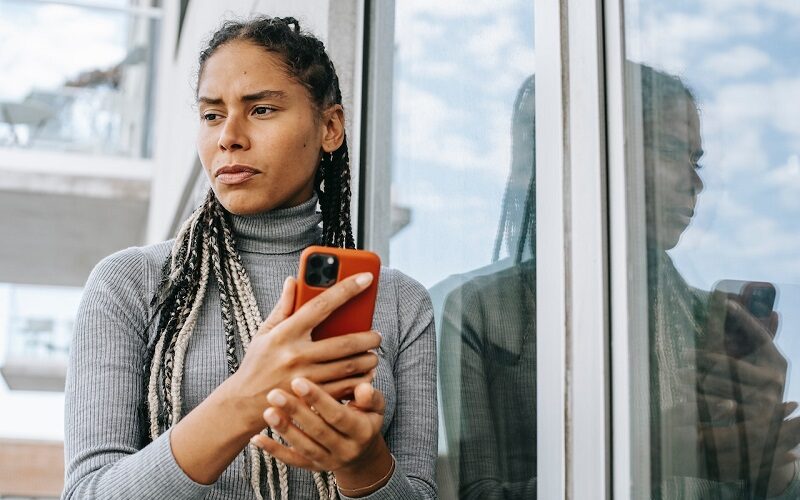The process of questioning sexuality is a profoundly personal experience that many people find themselves trying to navigate throughout life. It’s also (perhaps surprisingly) common — a recent Gallup poll found that more than 7% of the adult U.S. population identifies as lesbian, gay, bisexual, transgender, queer, or something else other than heterosexual (commonly referred to as LGBTQ). That’s more than double the number in 2012 when Gallup first began measuring it.
The journey of self-exploration can be fraught with mixed emotions. People can feel anything from hesitation, to inquisitiveness, to trepidation, to fear — and many people even experience delight.
For anyone trying to understand who they are in terms of their sexual orientation, the process can be a long road. If you or someone you care about has ever felt confused about sexuality, first and foremost, know that you’re not alone.
Learning more can offer insight, resources, and support. Patience, education, honesty, and professional help with an LGBTQIA+ therapist are helpful to go through the process in a healthy way. In the end, keeping an open mind is crucial, and self-discovery is a journey that’s well worth exploring.
Take Time to Understand & Explore Your Feelings
If you’re questioning your sexuality, making time for introspection and exploration is important. Your personal journey will be most successful if you take the time to understand your feelings and thoughts on a deeper level. Rest assured, this range of emotions you’re feeling is normal. You might feel excitement one moment and frightened the next — these feelings are all part of the process.
Things to ask yourself
Asking yourself a few questions might help if you’re struggling or confused about your sexuality. Talkspace therapist Reshawna Chapple suggests doing some self-reflection by exploring the following:
- Who do you see when you close your eyes and imagine yourself with a partner in a romantic relationship?
- Imagine photos you see of couples and families — are you drawn toward a specific type of couple?
- Being told your feelings are inadequate, wrong, or unworthy can cause significant internal turmoil — if you could set that aside, would it change how you feel?
- Are you conflicted due to your upbringing?
Educate Yourself on Different Sexual Orientations
If you’ve ever felt confused about sexuality, understanding the broad sexuality spectrum of sexual orientation is important. It may involve familiarizing yourself with various terms and concepts that define human sexuality.
The term sexual orientation isn’t confined to heterosexuality or homosexuality. It’s far more complex than this. Some are attracted to the opposite sex. Some people identify as bisexual, and bisexuality means they are drawn to both men and women. Others might recognize themselves as pansexual or queer, indicating they may be attracted to someone regardless of gender identity, or that they simply don’t identify with the “traditional” notation of sexual orientation, gender expression, or gender identity. You may also identify somewhere along the asexuality spectrum, meaning there is a certain lack of sexual attraction.
Pivotal research was done decades ago by the Kinsey Institute. One study where thousands were interviewed shed light on the complexities of sexuality, illustrating how it exists along a continuum rather than in binary form.
A note about fluidity
Beyond understanding the labels and categories, we must also acknowledge the concept of fluidity — which is simply recognizing that sexuality isn’t fixed.
Sexual fluidity accepts that attraction can change over time. It’s not unnatural for feelings toward specific genders to evolve throughout personal journeys — attractions can shift, whether due to environmental factors or internal growth. Learning about the diversity of sexual orientation can help create a safe space for exploration.
Seek Support
Anyone who’s exploring their sexuality or questioning their gender should find support. Often, the quickest and most accessible road to a support system can be through organizations dedicated to promoting LGBTQIA+ mental health — online communities and outreach programs are great options. Many organizations are committed to supporting people exploring their sexuality.
- The Trevor Project: The Trevor Project provides crisis intervention services for young people in the LGBTQIA+ community.
- GLSEN: The Gay Lesbian Straight Education Network (GLSEN) works tirelessly to create resources to help students grasp diverse identities while promoting acceptance across schools throughout America.
- Kinsey Institute: Kinsey Institute’s Kinsey scale, developed by Alfred Kinsey, offers insightful exploration into behaviors related to sexuality. While somewhat controversial today, Kinsey’s research into human sexuality opened the door to discussions that still prove immensely beneficial.
Explore Relationships & Experiences at Your Own Pace
When questioning sexuality, giving yourself the time and space to explore relationships and experiences at your own pace is important. This journey is unique to you, and there’s no right or wrong way to walk through it. Grant yourself the time, space, and permission to uncover what speaks to you and discover what you need to feel comfortable living your authentic truth.
Other tips to keep in mind while on this journey:
- Experience sexual attraction authentically: As you come to terms with your sexuality, focus on accepting your attraction toward others. Be true to your authentic self, embrace your desires, and do so without judgment or shame. Remember — your feelings are valid.
- Create safe spaces for exploration: Exploring in a safe space means surrounding yourself with supportive, understanding people who respect your journey and offer a non-judgmental environment. This might be a close friend, a family member, or an LGBTQIA+ support group. Find places where you feel confident being yourself and don’t fear being mistreated or disrespected.
- Navigate same-gender relationships healthily: Navigating early same-gender relationships can be overwhelming. It’s important to remember that you’re not alone in this experience — seek out resources and support networks that provide guidance and are understanding. Connecting with others who’ve gone through similar experiences can help you find a sense of belonging.
“It’s okay to take time to get to know someone and even date someone without coming out or declaring yourself LGBTQIA. Be patient with yourself and try to remember that it’s your identity, and there is nothing wrong with you.”
– Talkspace therapist Reshawna Chapple
Be Honest with What You Like & Don’t Like
Think of honesty as an emotional exercise. You can’t be honest with anyone until you’re comfortable being true to yourself. The process can be slow, but the results are worth the wait. Self-validation is instrumental in being able to live your life authentically.
Don’t Feel Pressured into Labeling Yourself
Avoid rushing to assign labels during your journey of self-discovery and exploration of sexuality. This process doesn’t require immediate labeling or definition, and you can choose when and how to come out (if you want to).
Look for Professional Counseling
Therapy can play a prominent role in coming to terms with your sexuality. The key to using the therapy process successfully involves several components, including:
- Seeking professional help: A licensed therapist specializing in LGBTQIA+ issues can offer a safe space that’s less daunting. Learn how to find an LGBTQIA+ therapist in our guide.
- Finding the right therapist: Selecting a mental health professional who respects and supports your process is crucial. This could mean seeking someone who’s experienced in working with those exploring gender identities and their sexuality. Online therapy platforms like Talkspace match clients with therapists who are versed in sexual identity exploration. As an added bonus, online therapy offers flexibility, convenience, and affordability.
- Finding acceptance within yourself: The most essential part of your journey is understanding that your sexual orientation doesn’t define you. It’s just one part of what makes you unique. Embracing your identity means acknowledging all aspects of yourself without shame. You can practice emotional exercises such as mindfulness meditation and self-compassion techniques to cultivate self-acceptance. These practices can help alleviate anxiety and stress if you’re questioning your sexuality.
“Questioning your sexuality is a normal part of maturing and understanding or defining your identity. Unfortunately, the media, and even friends and family, can provide incorrect information or information that tells an individual how to feel but does not help them understand or process these feelings. It’s important to seek professional help from someone who understands and can safely explain the process and provide guidance.”
– Talkspace therapist Reshawna Chapple
Embrace Your Identity & Find Self-Acceptance
Questioning sexuality is a self-discovery journey full of extreme emotions and experiences. Understanding your feelings takes time, patience, and honesty. It begins with embracing your identity so you can learn to accept yourself.
Finding support from friends, family, or a licensed therapist is crucial. If questioning your sexuality feels overwhelming, remember it’s OK not to have all the answers right now. The important thing is that you’re working toward being true to yourself.
If you’re questioning your sexuality and looking for support, Talkspace is here for you. Questioning your sexuality is normal. In fact, it can lead to personal growth and increased self-awareness, allowing you to live the best, most authentic, happiest life you’ve ever imagined. Getting there isn’t something you have to do alone. Reach out to Talkspace today to learn more.
Sources:
- Jones JM. LGBT identification in U.S. ticks up to 7.1%. Gallup.com. June 5, 2023. Accessed July 20, 2023. https://news.gallup.com/poll/389792/lgbt-identification-ticks-up.aspx.
- Exploring sexuality, relationships, and well-being. kinseyinstitute.org. Accessed July 20, 2023. https://kinseyinstitute.org/.
- For young LGBTQ LIVES. The Trevor Project. June 1, 2023. Accessed July 20, 2023. https://www.thetrevorproject.org/.
- Homepage. GLSEN. Accessed July 20, 2023. https://www.glsen.org/.
- The Kinsey Scale. Prevalence of Homosexuality study. Accessed July 20, 2023. https://kinseyinstitute.org/research/publications/kinsey-scale.php.
- Zietsch BP, Sidari MJ. The Kinsey Scale is ill-suited to most sexuality research because it does not measure a single construct. Proceedings of the National Academy of Sciences. 2020;117(44):27080-27080. doi:10.1073/pnas.2015820117. https://www.pnas.org/doi/10.1073/pnas.2015820117.
Talkspace articles are written by experienced mental health-wellness contributors; they are grounded in scientific research and evidence-based practices. Articles are extensively reviewed by our team of clinical experts (therapists and psychiatrists of various specialties) to ensure content is accurate and on par with current industry standards.
Our goal at Talkspace is to provide the most up-to-date, valuable, and objective information on mental health-related topics in order to help readers make informed decisions.
Articles contain trusted third-party sources that are either directly linked to in the text or listed at the bottom to take readers directly to the source.




